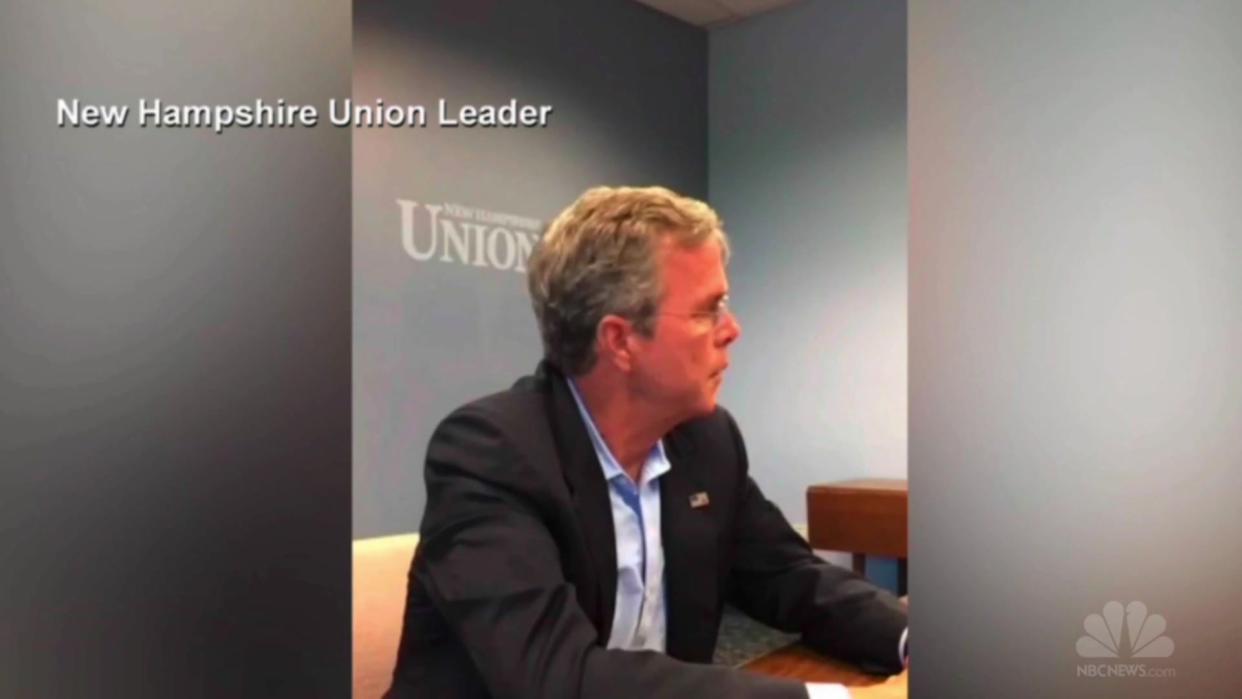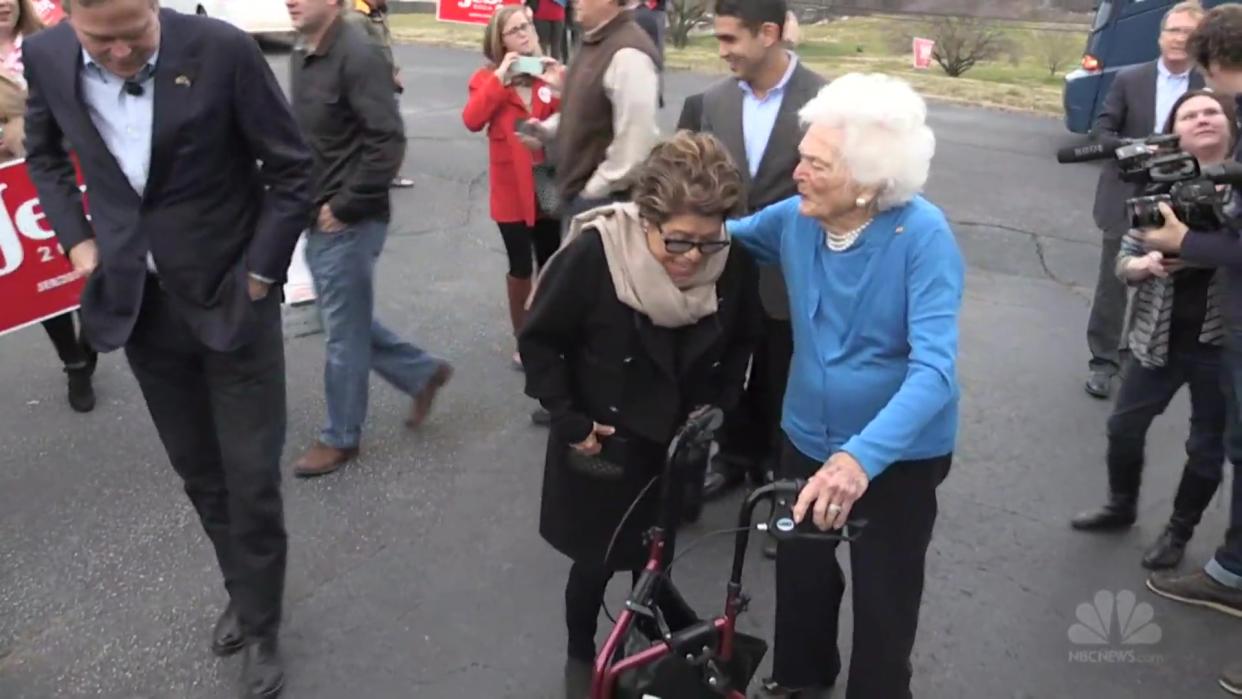Bush to donors: Campaign derailed by year of 'disruption,' 'outsiders'

Jeb Bush told donors Wednesday afternoon that he had seen a path to victory "from the very beginning" of his campaign but was unexpectedly stymied by "outsiders making a compelling case to people who are deeply disaffected and angry."
"I'm sorry that it didn't turn out the way that I intended. When I launched the campaign in front of 3-4,000 people in Miami, I anticipated a different result," an audibly disappointed Bush told donors on a national finance team call scheduled to thank them for their support.
He also said he plans to "do whatever I can now as a private citizen" to help nominate a conservative that can win the White House.
Bush, who ended his campaign after finishing fourth in the South Carolina primary on Saturday, said the reality of the race was that "we've had a year of disruption, a year of outsiders making a compelling case to people who are deeply disaffected and angry."
See more of Bush's campaign for president:
"And I just didn't get the breakthrough that I needed in the early states and felt it was important to not move on without a clear path to winning," he added.
Bush told donors he was "amazed at the press coverage of the campaign, and the lack of reality to how, at least, I felt the campaign was."
From his perspective, Bush said, voters were more interested in policy substance and solutions than the horserace coverage of the primary.
"At least, the people I was hanging out with, they're a lot more concerned about the student loan problem than they were about who was winning or who was losing. They were concerned about, how do we get...jobs back into our country, much more about that than they were about the latest insult in the campaign," he said.

The former Florida governor told donors he took a few days off after ending his bid, got back in the gym and is "sleeping really well," and that he and his wife are "blessed" to be back home in Miami.
But he hinted his return to politics — at least as a "private citizen," for now — is imminent.
"My hope is that a conservative will win the nomination and that he will go onto win the presidency, for our country's sake, and I intend to do whatever I can to make that happen now as a private citizen," he said.
He gave no indication during the phone call of who he might back.
But his exit from the race opened up a vast network of donors and operatives to the remaining candidates, and two — Florida Sen. Marco Rubio and Ohio Gov. John Kasich, both competing for establishment support — look best-poised to gain from Bush's loss.
Rubio's campaign has already picked up a number of former Bush backers both as endorsements and donors, and Rubio said the two have talked on the phone and plan to meet sometime soon, though he said they had not discussed an endorsement.
Indeed, his two finance chairmen — Woody Johnson, the billionaire owner of the New York Jets, and Jack Oliver, a longtime Bush family fundraiser, both of whom were on the call — would be a big pickup for any candidate looking to raise serious cash in the final sprint to the nomination.
Oliver seemed to indicate the Bush donor network could be rallied to a common cause in the future.
"The good news is, while it doesn't feel great and it's emotionally sad to see this happen for our country, we all have lots of important things to do and do together," he said. "Knowing that, as a collective, the Jeb Bush family — which each and every one of you are a part of — has changed history and will continue to change history, it will be fun to see what we do together and how it happens."
More from NBC News:
Is It Legal to Force Apple to Unlock Shooter's iPhone?
Mitt Romney Warns of Possible 'Bombshell' in Trump's Taxes
Fukushima Chiefs Apologize for Failing to Reveal Meltdown
